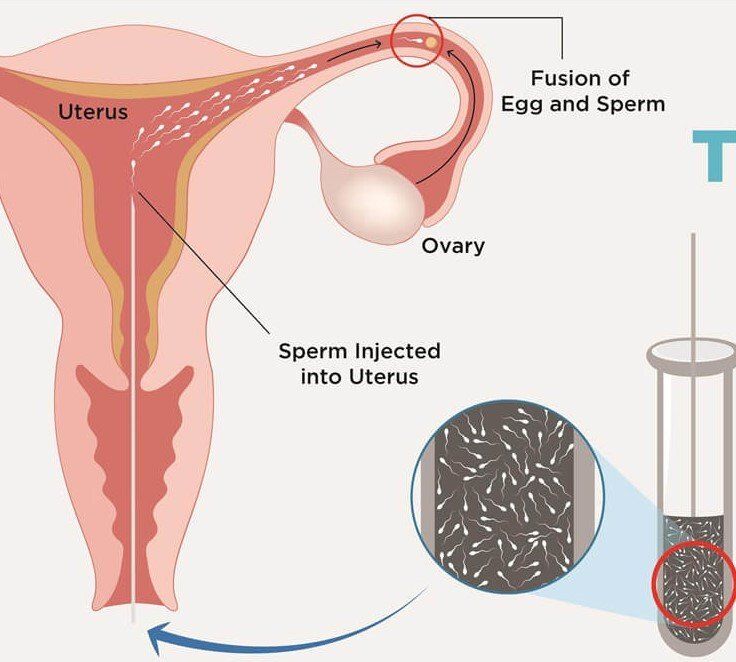Male Infertility
Male Infertility: Find the Causes and Lifestyle Changes
Nearly 1 in 10 men experience infertility, and in about 40% of infertility cases, male factor infertility is either the sole or contributing cause. Contrary to traditional beliefs, infertility isn’t just a woman’s problem, men play an equally vital role in conception.
At Precision IVF, we understand that a diagnosis of male infertility can be unexpected and emotionally challenging. Our compassionate team led by Dr. Arya, specializes in evaluating, diagnosing and providing personalized male infertility treatment options. When necessary, Dr. Arya collaborates closely with skilled male reproductive specialists to ensure the best outcome for every patient.
Some cases may involve anatomic factors like varicocele or obstruction (when no sperm is present in the ejaculate), endocrine causes such as hormonal imbalances or diabetes, or functional issues like erectile dysfunction. Whatever the cause, our goal is to help every hopeful parent overcome challenges and move closer to achieving their dream of parenthood.
Diagnosing Male Infertility
A proper diagnosis is the foundation of effective male infertility treatment. We start with a careful review of the patient's medical history, lifestyle habits, and any prior health issues that could affect fertility.
The most common male infertility test is a semen analysis, which measures:
- Volume – The amount of semen produced.
- Concentration – The number of sperm per milliliter of semen.
- Motility – The percentage of sperm that are alive and swimming.
- Morphology – The percentage of sperm with a normal shape.
Depending on the findings, additional hormonal tests, genetic testing, or imaging may be recommended to understand the underlying cause.

Common Male Infertility Causes
There are many male infertility causes, ranging from genetic conditions to lifestyle influences. At Precision IVF, we thoroughly evaluate all potential contributors, including:
Medical and Genetic Causes
- Genetic disorders such as Cystic Fibrosis or Klinefelter syndrome can interfere with sperm production or transport, leading to male infertility.
- Infections of the prostate or testicles may damage sperm-producing tissues or block sperm pathways, reducing fertility over time.
- Anatomical problems like blockages, varicocele, or tumors can affect sperm movement or quality, often requiring medical correction.
- Previous surgery or vasectomy that affects sperm transport may prevent sperm from reaching the ejaculate, impacting conception.
- Undescended testicles (especially when repaired late) can result in reduced sperm production due to early developmental issues.
- Injury or trauma to the pelvic or testicular area may cause long-term damage to reproductive organs, impairing fertility.
- Radiation or chemotherapy exposure can temporarily or permanently reduce sperm count and quality, depending on treatment intensity.
- Hormonal disturbances caused by obesity, diabetes or endocrine disorders can affect testosterone levels and sperm production, contributing to fertility challenges.
Lifestyle Factors
Lifestyle habits have a direct impact on sperm health and fertility:
Smoking:
Regular smoking can significantly reduce sperm count and motility, making it harder for sperm to reach and fertilize an egg. It can also damage sperm DNA, lowering fertility success rates.
Excessive Alcohol Use:
Drinking excessive alcohol can decrease testosterone levels and lead to erectile dysfunction. Over time, it also affects sperm production and overall reproductive health.
Prolonged Heat Exposure:
Frequent use of saunas, hot tubs or even keeping laptops on your lap for long periods can increase scrotal temperature, which may temporarily lower sperm production.
Stress:
Excessive emotional or physical stress can disrupt hormone balance, impacting sperm quality and reducing the chances of successful conception.
By addressing these issues, many men can improve fertility potential even before advanced male infertility treatment begins.
Signs and Symptoms of Male Infertility
Many men don’t realize they have a fertility issue until they begin trying to conceive. Common signs of male infertility include:
- Difficulty achieving pregnancy after one year of unprotected intercourse.
- Low sperm count or poor sperm motility.
- Pain, swelling or lumps in the testicles.
- Problems with sexual function (erectile dysfunction or low libido).
- Reduced facial or body hair, suggesting hormonal imbalance.
If you notice these male infertility symptoms, early consultation with a male infertility specialist at Precision IVF can help detect and treat issues promptly.
Advanced Male Infertility Treatments at Precision IVF
At Precision IVF we offer a comprehensive range of evidence based male infertility treatment options tailored to each individual’s condition and goals. Our treatments include:
1. Intrauterine Insemination (IUI)
In selected cases, when sperm quality is slightly reduced, IUI treatment can help by placing processed sperm directly into the uterus at the time of ovulation increasing the chance of fertilization.
2. In Vitro Fertilization (IVF) and ICSI
For more complex cases, IVF treatment combined with Intracytoplasmic Sperm Injection (ICSI) offers excellent success rates. During ICSI, a single healthy sperm is injected directly into an egg allowing fertilization even when sperm count or motility is severely reduced.
3.Surgical Sperm Retrieval for Azoospermia
When no sperm is found in the ejaculate (azoospermia), surgical methods can retrieve sperm directly from reproductive tissues. There are two main techniques used:
- Microsurgical Epididymal Sperm Aspiration (MESA)
MESA is ideal for obstructive azoospermia, often caused by vasectomy or congenital blockage. A fine needle is inserted through the scrotum into the epididymis to collect sperm through gentle suction.
- Testicular Sperm Aspiration (TESA) or Testicular Sperm Extraction (TESE)
In non-obstructive azoospermia, where the testicles produce little or no sperm, a fine needle is used to extract tissue samples from the testes. If sperm are found, they can be used for ICSI.
If sperm are not present, a small tissue biopsy (TESE) may be performed through a minor incision.
MESA and TESA procedures are timed to coincide with the egg retrieval step during the IVF cycle. For some, scheduling may be an issue. In those cases surgical sperm retrieval can be completed before the IVF cycle begins and frozen (cryopreserved) for future use. The extraction of sperm completed by MESA and TESA typically results in enough sperm to allow several IVF cycles.
Personalized Care by a Male Infertility Specialist
At Precision IVF, we believe that every patient deserves individualized care. Our team, led by Dr. Arya, provides compassionate, confidential, and effective management for all types of male infertility.
We coordinate closely with urologists and reproductive endocrinologists whenever additional evaluation or surgery is required. This collaborative approach ensures that you receive the most comprehensive male infertility treatment available in Frisco, Dallas and El Paso.
Lifestyle & Supportive Therapies
In addition to medical and surgical treatments, we emphasize lifestyle modifications that can significantly improve fertility outcomes:
- Maintain a healthy weight and balanced diet rich in antioxidants.
- Avoid smoking, excessive alcohol, and recreational drugs.
- Manage stress through meditation, exercise, or counseling.
- Limit exposure to high temperatures and environmental toxins.
These changes can enhance sperm health and increase the effectiveness of your male infertility treatment.

Why Choose Precision IVF for Male Infertility?
Comprehensive Diagnosis:
We conduct a complete evaluation to identify all potential male infertility causes using modern diagnostic tools and advanced technology for accurate results.
Advanced Treatments:
Our clinic offers advanced fertility solutions including IUI, IVF, ICSI, MESA and TESA tailored to meet each couple’s unique fertility challenges.
Collaborative Care:
We work closely with experienced urologists and andrologists, ensuring that even the most complex cases receive expert and multidisciplinary attention.
Patient Centered Approach:
Our team provides compassionate guidance and emotional support throughout your fertility journey helping you feel informed and cared for at every step.
Convenient Location:
Located in the heart of Frisco, Dallas and El Paso, our center offers easy access for couples across Texas seeking expert fertility evaluation and treatment.
Our ultimate goal is to help you achieve your dream of parenthood with expert care, modern science, and emotional support.


Take the First Step Toward Your Parenthood Journey
If you’re struggling with male infertility, you don’t have to face it alone. At Precision IVF, we specialize in advanced male infertility treatment in Dallas, combining clinical expertise with compassionate care.
Call us today at
972-573-3200 or
schedule your appointment online with Dr. Arya today to discuss your evaluation and personalized treatment plan.
Frequently Asked Questions
1. When should I see a male infertility specialist?
You should consult a male infertility specialist if you’ve been trying to conceive for over a year without success, have a history of testicular or hormonal issues, or notice symptoms like swelling, pain, or changes in sexual function.
2. Is male infertility permanent?
Not always. Many causes of male infertility are treatable through medical or surgical interventions. Even in severe cases, advanced reproductive technologies like ICSI and IVF offer excellent success rates.
3. Does age affect male fertility?
Although men can produce sperm throughout their lives, sperm quality tends to decline after age 40. This may increase the time it takes to conceive and slightly raise the risk of genetic abnormalities.
4. Does wearing tight underwear reduce fertility?
Tight underwear or pants can raise scrotal temperature slightly, which may impact sperm production. It’s generally advised to wear loose, breathable clothing to maintain optimal testicular temperature.
5. How long does it take to see improvement after male infertility treatment?
Sperm production cycles take about 70–90 days. This means lifestyle changes or treatments may take two to three months before showing measurable improvement in sperm quality.
6. How successful are male infertility treatments at Precision IVF?
Success depends on the cause and severity of the condition, but with our comprehensive diagnostics, advanced technology, and expert care, Precision IVF has helped numerous couples overcome infertility and achieve healthy pregnancies.
7. How can I schedule a consultation at Precision IVF?
You can schedule a consultation easily by calling our office directly at 972-573-3200 or book an appointment online. Our team will guide you through diagnosis and personalized male infertility treatment options to help you on your path to parenthood.









